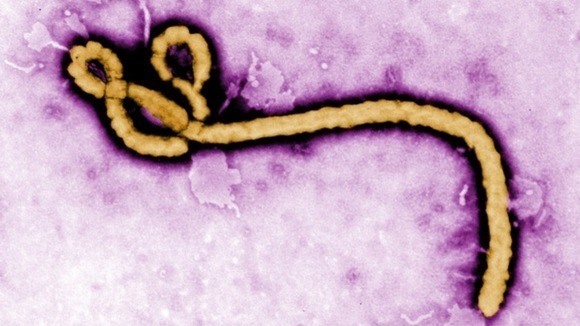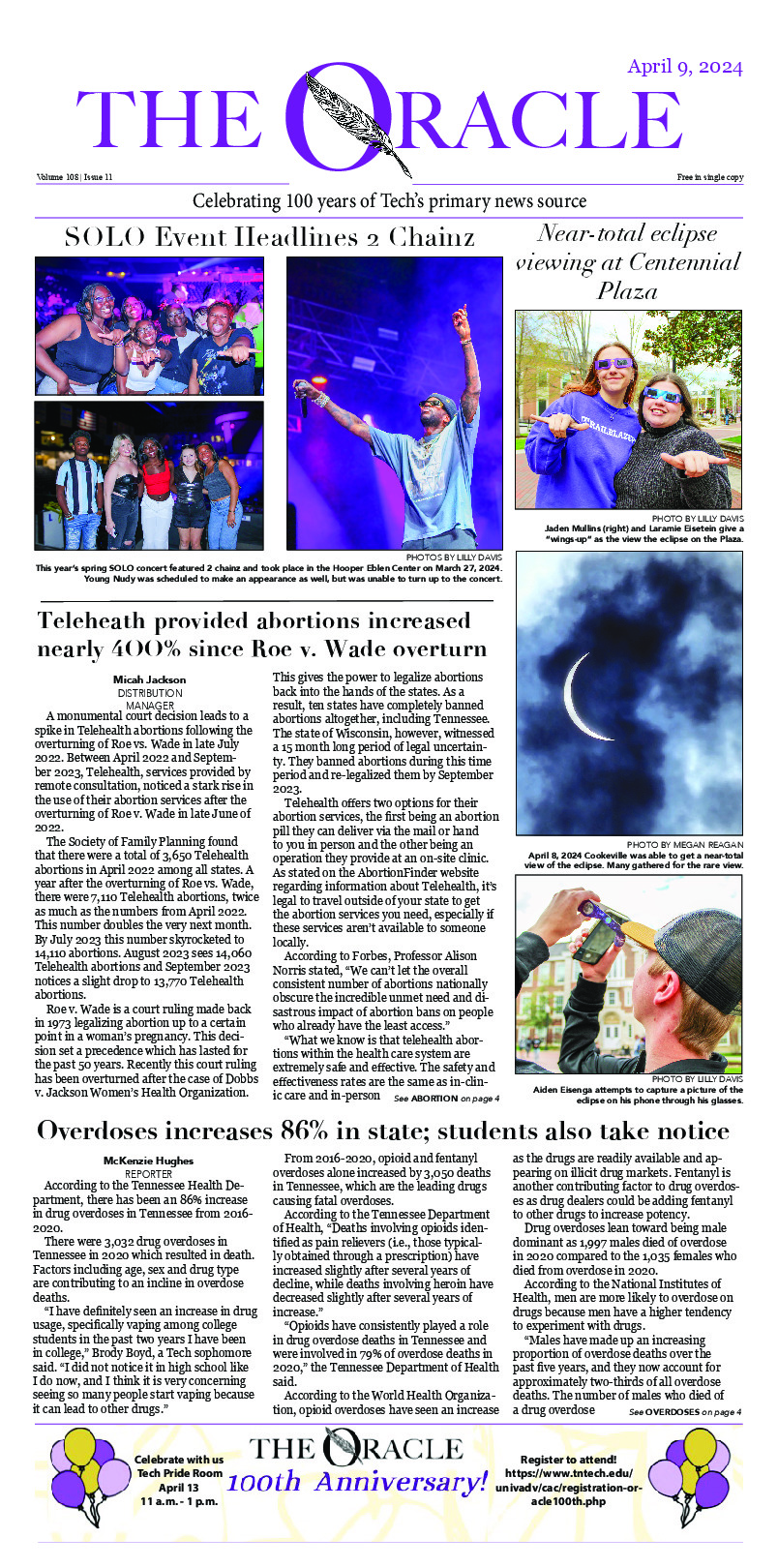
We may be almost 5,000 miles away, but we’re still involved.
Right now, at this very moment, I promise you’re better off than them: them being our fellow people of West Africa.
The Ebola epidemic has reached a death toll of 2,917 as of last Thursday, according to the World Health Organization. The majority of these deaths are from the small West African country of Sierra Leone.
How many of us have stopped and stuck our foot in the door, tried to end it or have rooted against it? I know I personally haven’t done enough.
Would I be more involved if it were in Cookeville? Most likely yes.
Unfortunately, this outbreak is without mercy and has declared a full-on war, and it’s about time we unify against it.
President Ernest Bai Koroma of Sierra Leone said that it is "worse than what was being reflected in reports,” and included that there was “desperate need to step up our response.”
Well, let’s see what we’re dealing with here.
The Ebola virus disease, or EVD, has had an outbreak twice in history, with this go-around being the largest and most destructive of the two. It’s a transmissible virus that has yet to find a licensed vaccine—a cure. The EVD has a fatality rate of 50 percent, often making it fatal to humans. According to the Boston Globe, 75 percent of the victims are also women.
At first the statistics of gender seem outlandish. However, I can see common ties. Many of those contracting the virus are the ones defending it: the nurses, doctors, volunteers and caregivers. The most common caregivers in West Africa are the mothers and grandmothers of the families.
It’s so sad to see those aiding the victims following suit to infection, but man, do I respect them for it. I respect anyone who is interceding and sacrificing themselves for those infected. Who exactly is sending these beautiful people?
Well, leading at the top is, you guessed it, us—Americans. According to the Office of the Press Secretary at the White House, we have assigned 3,000 U.S. forces to Liberia, are training as many as 500 health care workers a week and are building 17 health care facilities with 100 beds each.
Incredible what we can manage to do when we reach out to those in need.
So why discuss this issue? Well, the Centers for Disease Control released a statement that said by January 2015 there could be around 1.4 million cases of EVD unless we take immediate action. The word “we" spans more than just our nation. It describes a global effort to bring this disease to a halt. Unless we want EVD to become a permanent problem in West Africa, our efforts need to be focused at this time.
The director of the CDC, Dr. Thomas Frieden, said, "A surge now can break the back of the epidemic, if you get enough people effectively isolated, the epidemic can be stopped."
So that’s what we need to do.
Practically speaking though, how can we be the hands of this mission?
By giving aid.
In between college classes and loans, the chances of me boarding a plane to West Africa are fairly unlikely. But giving is not. Sure, money isn’t overflowing and definitely not in surplus, but I have the ability many people don’t. Giving a dollar can make an impact.
Organizations such as AmeriCares, Samaritan’s Purse, UNICEF and the Red Cross have made it possible to donate with 100 percent assurance of where the money is going.
Yeah, yeah, maybe you think I sucked you in to the trap of “give now" and “be a better civilian,” but that’s not the point. My article was written to remind us that we as citizens of this earth have such great freedom, but we also have the responsibility to keep it spinning, to protect the precious people we have and to continue thriving. We can’t fully function if a part of our earth is suffering.
I have every right to life. You have every right to life. Let’s ensure that those in danger know their rights as well.


